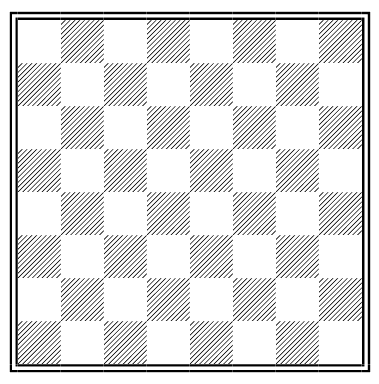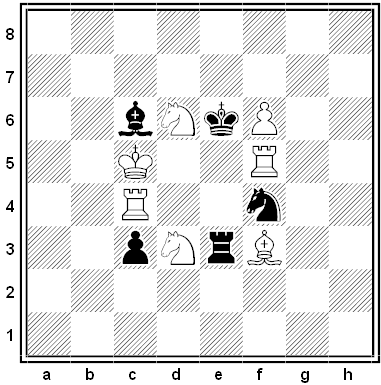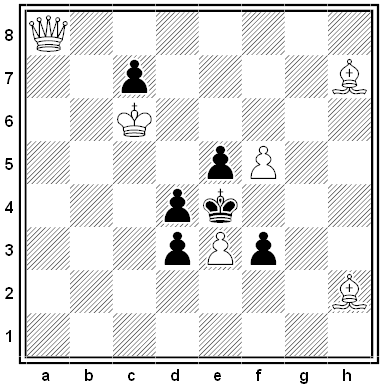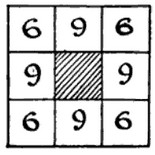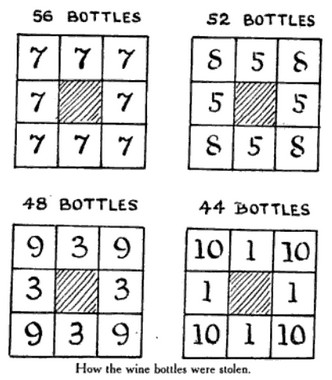It’s a transposition cipher. Lay out the 336 letters into 4 rows of 84 characters:
TEIILLFILHTCETUFDHSOOENPRYYUGOHNGOFLOVTUGCHANNOATNAEHATISUWEETFSTGSCADOFRGHPELPEHASL
EGASTHNGSMRLHLARARNIFTHRDLNITFOSSWSGNYILEEFALTODECTIESOLNTSNTCOOUEAODNTIUTAITIOONLEA
NRIIGOTAHNOMRINHEYLMFDSTTTSMANHHOFEIIETODDOTPCAMOTIEFMONGIMCLATTCHBYIMNNETROXEMCOUVS
FHAELMPNNCTAWETRWOOAHEEIYCNAOIRBTRTXETPEIZNRSCSATIKOHNITHTEMFNENNRUOGOTGPENETPSYANSZ
Cut that in two and lay the two halves alongside one another:
TEIILLFILHTCETUFDHSOOENPRYYUGOHNGOFLOVTUGC
EGASTHNGSMRLHLARARNIFTHRDLNITFOSSWSGNYILEE
NRIIGOTAHNOMRINHEYLMFDSTTTSMANHHOFEIIETODD
FHAELMPNNCTAWETRWOOAHEEIYCNAOIRBTRTXETPEIZ
HANNOATNAEHATISUWEETFSTGSCADOFRGHPELPEHASL
FALTODECTIESOLNTSNTCOOUEAODNTIUTAITIOONLEA
OTPCAMOTIEFMONGIMCLATTCHBYIMNNETROXEMCOUVS
NRSCSATIKOHNITHTEMFNENNRUOGOTGPENETPSYANSZ
Interleave the rows:
TEIILLFILHTCETUFDHSOOENPRYYUGOHNGOFLOVTUGC
HANNOATNAEHATISUWEETFSTGSCADOFRGHPELPEHASL
EGASTHNGSMRLHLARARNIFTHRDLNITFOSSWSGNYILEE
FALTODECTIESOLNTSNTCOOUEAODNTIUTAITIOONLEA
NRIIGOTAHNOMRINHEYLMFDSTTTSMANHHOFEIIETODD
OTPCAMOTIEFMONGIMCLATTCHBYIMNNETROXEMCOUVS
FHAELMPNNCTAWETRWOOAHEEIYCNAOIRBTRTXETPEIZ
NRSCSATIKOHNITHTEMFNENNRUOGOTGPENETPSYANSZ
Combine the halves again and read first the odd and then the even-numbered columns:
TEIILLFILHTCETUFDHSOOENPRYYUGOHNGOFLOVTUGCNRIIGOTAHNOMRINHEYLMFDSTTTSMANHHOFEIIETODD
HANNOATNAEHATISUWEETFSTGSCADOFRGHPELPEHASLOTPCAMOTIEFMONGIMCLATTCHBYIMNNETROXEMCOUVS
EGASTNHGSMRLHLARARNIFTHRDLNITFOSSWSGNYILEEFHAELMPNNCTAWETRWOOAHEEIYCNAOIRBTRTXETPEIZ
FALTODECTIESOLNTSNTCOOUEAODNTIUTAITIOONLEANRSCSATIKOHNITHTEMFNENNRUOGOTGPENETPSYANSZ
“THE FINAL LOT OF THE LAST THREE THOUSAND WAS SENT OFF ON THURSDAY AND GOT THROUGH SAFE STOP NOTHING SEEN OF NIPASGAL STOP THINK OF THROWING THEM WELL OFF THE SCENT BY USING ANOTHER PORT NEXT TIME STOP ADVISE AGAINST LANDING CHEMICALS TILL FURTHER NOTICE STOP GREY CLOUD IN OFFING STOP WIL GIVE YOU ALL CLEAR THRICE COMMA AT NINE COMMA NINE THIRTY COMMA AND TEN THIRTY COMMA ON NIGHT BEFORE I EXPECT YOU ENDS ZZ”
The method of solution is laid out on pages 148-161 of the novel.
(Via Craig Bauer’s 2016 book Secret History: The Story of Cryptology.)
08/21/2021 UPDATE: Connington’s text contains six errors, which are carried through in Bauer’s exercise. I’d caught two of these in writing this post but overlooked the other four. Reader Peter Dawyndt kindly sent the ciphertext as it should have appeared:
TEIIL LFILH TCETU FDHSO OENPR YYUGO HNGOF
LOVTU GCHAN NOATN AEHAT ISUWE ETFST GSCAD
OFRGH PELPE HASLE GASTN HGSMR LHLAR ARNIF
THRDL NITFO SSWSG NYILE EFALT ODECT IESOL
NTSNT COOUE AODNT IUTAI TIOON LEANR IIGOT
AHNOM RINHE YLMFD STTTS MANHH OFEII ETODD
OTPCA MOTIE FMONG IMCLA TTCHB YIMNN ETROX
EMCOU VSFHA ELMPN NCTAW ETRWO OAHEE IYCNA
OIRBT RTXET PEIZN RSCSA TIKOH NITHT EMFNE
NNRUO GOTGP ENETP SYANS Z
Also, I introduced one typo in the plaintext — WIL should be WILL. Sorry for these errors; this cipher must have frustrated Connington’s readers. (Thanks, Peter.)
